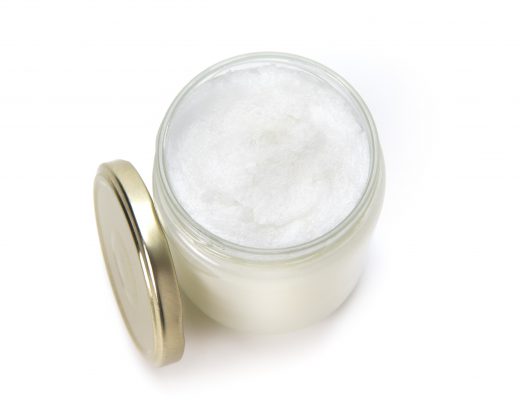The simple answer: yes, it does. Apple cider vinegar is linked to a range of health benefits, such as weight loss, relieving cold symptoms and lowering blood glucose levels post meal. How does vinegar decrease the glucose spike from a carb-rich meal? Here’s what the research shows, and tips for working vinegar into your diet.
This kitchen staple results from a two-step fermentation process that converts a carbohydrate (usually fruit, rice, potatoes, or whole grains) into alcohol, which is then fermented to vinegar. First, yeast feed on liquid sugar or starch, fermenting it into alcohol. When the alcohol is exposed to oxygen, naturally-occurring bacteria called Acetobacter create acetic acid—the stuff that gives vinegar its tart, sharp taste, and what’s likely at work when it comes to blunting a post-meal blood-sugar spike.
How Does Vinegar Impact Blood Sugar?
There isn’t a clear understanding on one certain mechanism behind vinegar’s effect on glucose, but there are a few research-backed theories:
- The acetic acid in vinegar slows down the rate at which the stomach empties the food you’ve eaten into the small intestine, which in turn slows the breakdown of carbohydrates and gives the body more time to remove glucose from the blood. This ultimately reduces the spike in blood sugar you’d typically see after eating. In one small study of 10 healthy, regular weight volunteers, researchers found that the ingestion of acetic acid as vinegar significantly reduced both blood glucose concentrations and insulin responses after a starchy meal.
- Vinegar may act on the body’s cells, increasing their ability to take in glucose, so there’s less of it circulating in the bloodstream. One group of researchers found increased glucose uptake in the forearm muscle cells of people with diabetes who had consumed vinegar compared to those who hadn’t.
- Vinegar may also work to balance blood sugar by interfering with disaccharidases—enzymes in the small intestine that break down carbohydrates. Anything that acts to block the capabilities of the enzymes that break down the carb curbs the rapid absorption of the carb as glucose, blunting the blood sugar rise you might typically see after eating.
Five Ways to Incorporate Vinegar into Your Meals
Dilute two tablespoons of apple cider vinegar in 4 oz of water and drink right before you eat. In one study, participants consumed a buttered bagel with orange juice two minutes after drinking either 20 grams of apple cider vinegar or a placebo. When the researchers checked blood glucose levels at 30 and 60 minutes after the meal, they found significantly lower post-meal blood glucose levels in the apple cider vinegar group.
Have a vinegar-based salad dressing before you eat. This may be especially helpful if you’re planning on having a carbohydrate-rich meal. One study showed that when people consumed 1 ounce of white vinegar with a meal of bread containing 50 grams of carbohydrates, it lowered post-meal glucose spikes and insulin levels.
Another study of healthy people found that eating 100 grams (about a cup and a half) of sliced lettuce dressed with olive oil and vinegar before consuming 50g of white bread carbs experienced significantly lower blood sugar compared to those who ate the same amount of salad dressed with olive oil but no vinegar.
Interestingly, the study authors also compared the vinegar group to a second vinegar group in which they added sodium bicarbonate to the vinegar to neutralize its pH. The scientists found that the neutralized vinegar did not affect blood sugar, suggesting that vinegar’s acidic nature plays a crucial role in its ability to modulate blood sugar.
Drizzle vinegar over steamed or roasted veggies. It turns out even a small amount of vinegar consumed with meals can help control blood sugar, too. One study found consuming two teaspoons of vinegar with carbs may reduce post-meal blood glucose levels as much as 20 percent. Bonus: the study also found that consuming vinegar with a high-carb meal also increases satiety.
Eat more fermented foods. They’re good for your gut and your blood glucose. When researchers in Sweden added fermented milk (a.k.a. yogurt) and pickles (cucumbers preserved in vinegar) to a breakfast of high-carb white bread, they found that the combination reduced blood sugar and insulin levels compared to study participants who just ate the bread. What’s more, the scientists found that adding regular milk and fresh cucumber had little impact on blood sugar response.
*Adding Apple Cider Vinegar diluted in water 15 minutes before a meal is a tool I use with many of my clients. Not only have I seen it help with weight loss, but I’ve seen the benefits of reducing blood sugar spikes after a meal. My clients use this tool before most meals, not just high carb ones. Apple Cider Vinegar helps stimulate HCL (hydrochloric acid) production in the stomach which helps break down food, improving digestion.
It’s a wonderful food-as-medicine tool to use! Although, it’s not an excuse to continue to eat high carb meals while having diabetes.





No Comments